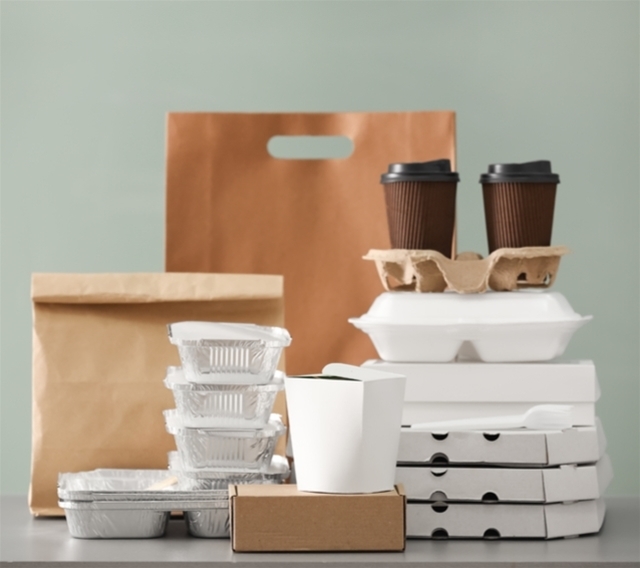Packaging adhesives play a vital role in ensuring product safety, quality and integrity during transport and storage. The adhesive industry is constantly innovating to meet the dynamic needs of the packaging sector.
Hot Melts Adhesives
Hot melts adhesives are widely used for carton closure, case sealing and other packaging applications that require high bond strength and quick setting speeds. These solvent-free adhesives are supplied in solid form and melt on heating before application. Some key advantages of hot melts include being odorless, non-toxic and providing an instantaneous bond when cooled.
Hot melts adhere well to a variety of substrates like paper, film and foil. They find extensive usage in packaging industries like food, beverage, consumer goods and pharmaceuticals where safer adhesive chemistries are preferred. Leading manufacturers offer hot melt solutions tailored for specific substrates like polyethylene (PE), polypropylene (PP) and high-density polyethylene (HDPE) used across packaging. Hot melts provide durability, resistance to moisture penetration and help seal packages effectively.
Water-based Adhesives
With growing environmental concerns, water-based adhesives are gaining popularity in packaging applications. These environmentally-friendly adhesives have low VOCs (Volatile Organic Compounds) and odour emissions compared to solvent-based alternatives. Another key advantage is their ability to disperse easily in water, making them safer to use.
Water-based adhesives find widespread application in carton closing, case sealing and corrugated board bonding. They work well with a variety of substrates including paper, paperboard and foil. Leading brands offer water-based adhesives specially formulated for high-speed production lines with superior bonding characteristics. These adhesives deliver strong, long-lasting bonds resistant to heat, moisture and chemicals typically encountered during storage and transportation of packaged goods.
Different types of water-based adhesives used in packaging include acrylic emulsions, polyvinyl acetates (PVA), ethylene-vinyl acetates (EVA) and styrene-butadiene rubber (SBR) based formulations. Packaging converters prefer water-based adhesives for their ability to meet stringent environmental and labelling regulations.
Solvent-based Adhesives
While water-based Packaging Adhesives are spreading, solvent-based adhesives still serve specialised needs in niche packaging segments. These adhesives use organic solvents like acetone, toluene, methyl ethyl ketone (MEK) and ethyl acetate as carriers for the adhesive resin.
Solvent-based adhesives provide superb bonding to difficult-to-bond substrates like glass, ceramic, foam and synthetic materials. They find applications in specialty packaging like laminating laminates, foils and labels. Due to fast drying capabilities, solvent adhesives are also preferred for high-speed packaging operations.
However, drawbacks of solvent adhesives include their toxic nature requiring special handling. Strict VOC regulations are nudging the packaging industry to progressively replace solvent adhesives with safer water-based alternatives. Still, for specific applications demanding high heat and chemical resistance, solvent adhesives continue delivering performance. Leading brands offer specialized solvent-based products optimized for critical packaging applications.
Adhesive Innovation meets Sustainability
The packaging adhesive industry is innovating to deliver more sustainable solutions aligned with environmental and social mandates. Brands are developing bio-based adhesives formulated from renewable plant-derived resins and bio-polyols. These green adhesives have lower carbon footprints and fossil fuel dependency compared to traditional petroleum-based versions.
Areas like renewable raw material sourcing, reduced VOC emissions, reusable/recyclable packaging and optimization of adhesive application processes are also receiving focused R&D. Innovation is happening in adhesive chemistries to enable recyclability of multi-material packaging and alternative substrates like bio-plastics.Adhesive manufacturers partner with packaging corporations to develop customized sustainable solutions across every product lifecycle stage from design to waste management.
Overall, the packaging adhesives sector is progressing towards reduced environmental impact without compromising performance. Emerging solutions are opening new opportunities for brand partnerships building a sustainable future together. Innovation will continue powering this industry’s essential role in the packaging value chain for years ahead.
As packaging needs evolve rapidly across industries, adhesive innovation will remain critical. Sustainable progress through R&D and collaboration ensures the glue that holds packaging together strengthens supply chains and communities for a brighter tomorrow.
*Note:
1. Source: Coherent Market Insights, Public sources, Desk research
2. We have leveraged AI tools to mine information and compile it

